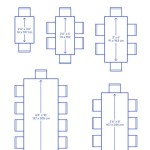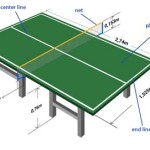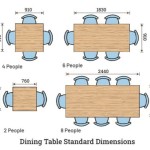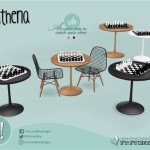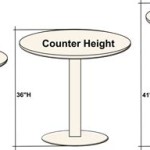What is the Best Water Purification Tablet? A Comprehensive Guide
Ensuring access to safe drinking water is paramount, especially in environments where reliable water sources are scarce or potentially contaminated. Water purification tablets offer a convenient and effective solution for treating water in emergency situations, outdoor adventures, and travel to areas with questionable water quality. These tablets work by releasing chemical compounds that neutralize harmful microorganisms, rendering the water safe for consumption. Selecting the best water purification tablet requires understanding various factors, including effectiveness, taste, ease of use, and potential side effects.
This article aims to provide a comprehensive overview of water purification tablets, exploring their mechanisms of action, different types available, factors to consider when choosing a product, and potential benefits and limitations. It will also address common misconceptions surrounding water purification tablets, helping to equip readers with the knowledge to make informed decisions about water safety.
Key Considerations in Choosing Water Purification Tablets
Several critical factors influence the selection of the best water purification tablet for a given situation. These include the active ingredients of the tablet, its effectiveness against different types of pathogens, the speed of purification, the taste imparted to the water, and any potential health risks associated with long-term use. Evaluating these aspects ensures that the chosen tablet effectively addresses the specific needs and circumstances of the user.
The active ingredient is arguably the most important factor. Different chemicals target different types of microorganisms with varying degrees of success. Some tablets may be more effective against bacteria, while others may be better at neutralizing viruses or protozoa. Understanding the potential contaminants in the water source is crucial for selecting the right product.
Ease of use is another significant consideration. The simpler the process, the less likely errors will occur that compromise the effectiveness of the treatment. Tablets that dissolve quickly and require minimal waiting time are generally preferred, especially in urgent situations. The taste of the treated water can also influence user compliance. Some tablets leave a noticeable chemical aftertaste, which can be unpleasant and discourage people from drinking the necessary amount of water.
Finally, potential health risks associated with long-term use should be carefully considered. While water purification tablets are generally safe for short-term use, prolonged exposure to certain chemicals can have adverse effects. Individuals with pre-existing health conditions, pregnant women, and children may need to exercise additional caution and consult with a healthcare professional before using water purification tablets regularly.
Understanding the Active Ingredients and Their Mechanisms
The effectiveness of a water purification tablet hinges on its active ingredient and the way it interacts with microorganisms in the water. The most common active ingredients include chlorine, chlorine dioxide, and iodine. Each of these chemicals works through different mechanisms to neutralize or kill pathogens, rendering the water safe for consumption.
Chlorine-based tablets are widely used due to their effectiveness against a broad spectrum of bacteria and viruses. Chlorine disrupts the cellular processes of microorganisms, preventing them from replicating and causing disease. However, chlorine is relatively less effective against certain protozoa, such as Giardia and Cryptosporidium, which possess a protective outer shell.
Chlorine dioxide is another potent disinfectant known for its ability to neutralize bacteria, viruses, and protozoa. It works by oxidizing the cell walls of microorganisms, disrupting their structure and function. Unlike chlorine, chlorine dioxide does not react with organic matter to form harmful byproducts, making it a safer option for treating water with high levels of organic contamination. It also tends to have a less noticeable taste compared to chlorine.
Iodine-based tablets have been used for water purification for many years and are effective against a wide range of pathogens. Iodine works by penetrating the cell walls of microorganisms and interfering with their metabolic processes. However, iodine is relatively slow-acting and can impart a distinct taste to the water. It is also not recommended for use by pregnant women, individuals with thyroid conditions, or people allergic to iodine.
The choice of active ingredient depends on several factors, including the potential contaminants in the water source, the desired speed of purification, and any individual health considerations. It is important to carefully read the product label and follow the manufacturer's instructions for proper dosage and contact time.
Practical Considerations: Application and Limitations
While water purification tablets offer a convenient solution for treating water, it is important to understand their limitations and use them properly. These limitations stem from the tablets’ efficacy against different pathogens, their sensitivity to water temperature, and the practical requirements of their application.
One significant limitation is that water purification tablets do not remove sediment or other physical impurities from the water. Turbid water can reduce the effectiveness of the tablets, as the disinfectant may be consumed by organic matter before it can neutralize microorganisms. Therefore, it is generally recommended to pre-filter the water through a cloth or coffee filter to remove any visible particles before using the tablets.
Water temperature can also affect the disinfection process. Colder water temperatures slow down the chemical reactions, requiring longer contact times for the tablets to be effective. In very cold conditions, it may be necessary to warm the water slightly to ensure proper disinfection. Conversely, extremely hot water might accelerate the degradation of the active ingredient, potentially reducing its effectiveness.
The manufacturer's instructions regarding dosage and contact time must be followed precisely. Using too few tablets or not allowing sufficient contact time may result in incomplete disinfection, leaving harmful microorganisms alive in the water. Overdosing, while often not severely dangerous, can lead to an unpleasant taste and potentially exacerbate any side effects. Typically, a single tablet treats one liter or quart of water, but this can vary depending on the specific product and the condition of the water.
Finally, it's important to remember that water purification tablets are not a substitute for proper sanitation practices. They should be used in conjunction with other measures, such as washing hands frequently and avoiding contact with contaminated water sources. Storing the tablets in a cool, dry place is also crucial to maintain their effectiveness over time.
Storing water purification tablets correctly is also critical for maintaining their effectiveness. Exposure to heat, moisture, and direct sunlight can degrade the active ingredients, reducing their ability to disinfect water effectively. Tablets should be stored in their original, airtight packaging in a cool, dry place away from direct sunlight and extreme temperatures.
Additionally, it's crucial to check the expiration date of the tablets before use. Expired tablets may have reduced potency and may not effectively disinfect water. Using expired tablets can compromise water safety and increase the risk of waterborne illness. Regularly inspecting the tablets for any signs of damage, such as cracks or crumbling, is also recommended to ensure their integrity.
Users should also be aware of potential interactions between water purification tablets and other substances. For example, certain medications or supplements may react with the active ingredients in the tablets, potentially reducing their effectiveness or causing adverse side effects. Individuals taking prescription medications or dietary supplements should consult with a healthcare professional before using water purification tablets regularly.
The availability and accessibility of water purification tablets can also be a practical consideration. In remote or emergency situations, access to these tablets may be limited or nonexistent. Therefore, it's advisable to carry a supply of tablets as part of a preparedness kit for outdoor adventures, travel to developing countries, or emergency situations.
Water purification tablets can be a vital tool for ensuring access to safe drinking water in various situations. However, understanding their limitations, using them properly, and storing them correctly are essential for maximizing their effectiveness and protecting against waterborne illness.
It is important to note that some protozoa, like Cryptosporidium, are particularly resilient and may not be fully eliminated by standard water purification tablets. If Cryptosporidium is a concern, using a water filter with a pore size small enough to remove the oocysts (typically 1 micron or smaller) is recommended, or boiling the water for at least one minute (or longer at higher altitudes) can effectively kill most pathogens, including Cryptosporidium.

5 Best Water Purification Tablets In 2024 99boulders

Best Water Purification Tablets And Other Portable Purifiers The Prepared

The 5 Best Water Purification Tablets For Backng And Survival

Best Water Purification Tablets Review Guide In 2024

Best Water Purification Tablets And Drops Countryfile Com

Best Water Purification Tablets Of 2024 Field Stream

Best Water Purification Tablets For 2024 Outdoors With Bear Grylls

Water Purification Tablets For 12 Litres 75mg Nadcc Best Treatment World S Leading

Water Purification Tablets For 1200 Litres 4gm Nadcc Overhead And Underground Tanks List Of Best In

Best Water Purification Tablets For 2024 Outdoors With Bear Grylls

